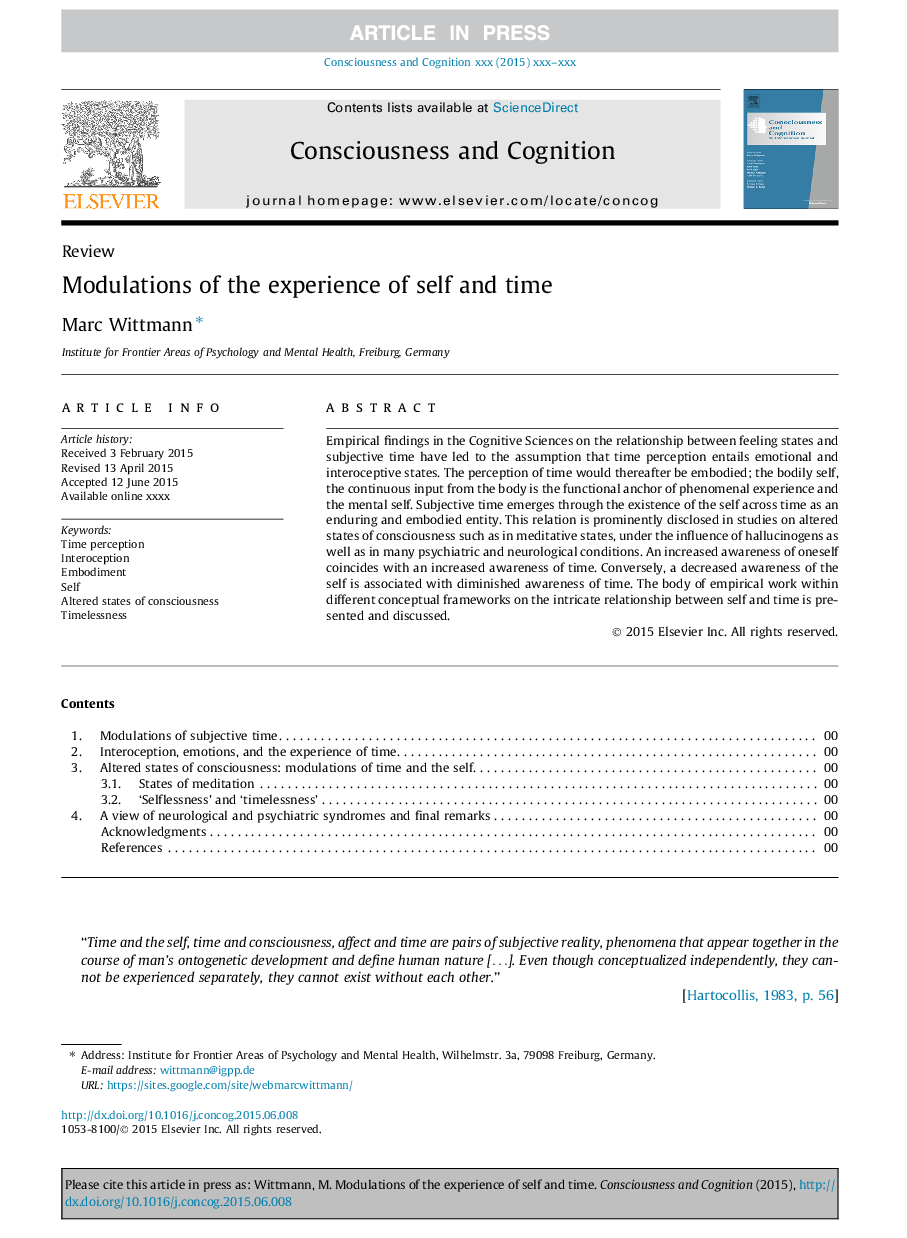| Article ID | Journal | Published Year | Pages | File Type |
|---|---|---|---|---|
| 7288887 | Consciousness and Cognition | 2015 | 10 Pages |
Abstract
Empirical findings in the Cognitive Sciences on the relationship between feeling states and subjective time have led to the assumption that time perception entails emotional and interoceptive states. The perception of time would thereafter be embodied; the bodily self, the continuous input from the body is the functional anchor of phenomenal experience and the mental self. Subjective time emerges through the existence of the self across time as an enduring and embodied entity. This relation is prominently disclosed in studies on altered states of consciousness such as in meditative states, under the influence of hallucinogens as well as in many psychiatric and neurological conditions. An increased awareness of oneself coincides with an increased awareness of time. Conversely, a decreased awareness of the self is associated with diminished awareness of time. The body of empirical work within different conceptual frameworks on the intricate relationship between self and time is presented and discussed.
Related Topics
Life Sciences
Neuroscience
Cognitive Neuroscience
Authors
Marc Wittmann,
